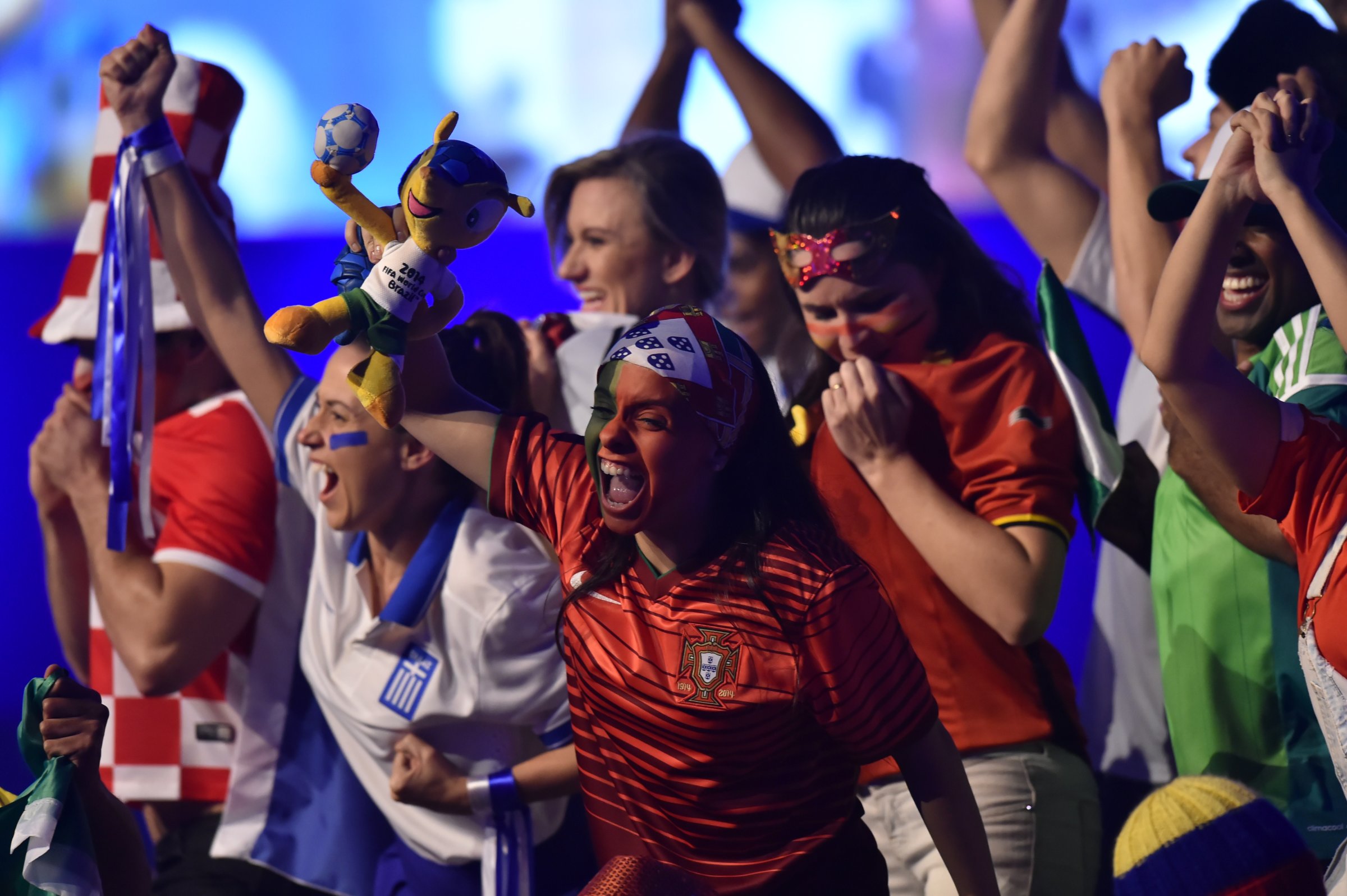
When I was 17 I spent the summer in France on an exchange program, living with a family in an idyllic town in Normandy, parlando the language of Napoleon and Camus (OK, so my conjugations may be a bit off, it’s been a while) and doing my best to avoid eating cheese, which wasn’t easy seeing how it was both a national and regional obsession. My French “parents” seemed to think it was incroyable and pas possible that someone would come all the way to France for a summer and not eat cheese (my attempts to explain that j’aime pas le fromage everywhere fell on deaf ears).
But away from the dinner table, I had a far easier time assimilating with the natives than most of the other American kids in my study program. That’s because I played and shared the French kids’ obsession – le football. Not only could I make friends by playing in the park, but also, as a result of having grown up in Mexico, I had a reservoir of shared knowledge binding me to French kids that my American classmates simply did not have: the World Cup.
The World Cup has provided a tidy punctuation to my life every four years, and in the summer prior to my Normandy adventure, the most memorable match of the Spain 1982 World Cup was the French semifinal overtime loss to the Germans. Even a year later, by pretending I had been rooting for the French and grousing about how dirty the German team had played, I could fit right in.
Soccer (like religion) remains one of the few non-American narratives binding the world together. When it comes to global pop culture, if it isn’t the latest World Cup or European Champions League, the only things kids in France, Mexico, Ghana, and South Korea share in common are U.S. imports: Hollywood blockbusters, American TV series, music, video games, and the English language. The NBA and NFL have followings overseas, but sport still remains the weakest link in America’s hegemonic control over global culture.
In fact, global soccer culture is changing the United States, thanks to the interest of both affluent white suburbanites and immigrant groups. Today the United States boasts a highly respected national team that easily qualifies for the World Cup every four years; a decent domestic league established as a legacy of the 1994 World Cup played here; and armies of youth soccer players.
Far more people in the United States watched the Spain-Netherlands final of the 2010 World Cup (24.3 million) on TV than watched the decisive fifth game of Major League Baseball’s World Series that year between the Texas Rangers and San Francisco Giants (15 million). Heck, only 4 million more people watched Game 7 of the Celtics-Lakers NBA Finals that year than the World Cup final. Remember, the match we’re talking about pitted Spain against Holland. Kicking a ball around.
Equally impressive, and more important in the long run, is the proliferation of media outlets for international soccer. NBC airs English Premier League matches, and a number of cable channels serve up games from the German, Italian, Spanish, and Mexican leagues every weekend. A generation of young gamers is hooked to FIFA’s soccer on their Xbox or Playstation. I console myself that when my kid is seemingly lost to the hypnotic powers of the video game, he is actually learning about other countries. (The other day I caught him playing Dortmund against Valencia).
It’s hard to exaggerate how much soccer’s incursion into American life threatens to erode American exceptionalism, not to mention our traditional geographic illiteracy. American kids now routinely wear the jerseys of teams in places like Barcelona and Munich, much like their counterparts in the rest of the world. Soccer offers American sports fans a sense of global, not just national, connectedness.
For most of the 20th century, even when so much of our culture was being adopted by others, Americans were adamant about not reciprocating by adopting the world’s sport. The prevailing culture was suspicious of the game, which at times could seem futile. Imagine going an entire match without scoring! Or, worse, tying! It seemed the duty of patriotic Americans was to avoid soccer, and even ridicule it, as much as it was to refuse measuring in centigrade or meters. We compensated for our sports provincialism by calling the champions of our domestic sports leagues “world champions.”
But all that is changing. With the World Cup in the Americas for the first time in 20 years, the United States will experience this year’s tournament in a big way, and the exciting narratives that spin out of it will help bind young American fans to cheese-eating kids in Normandy, and elsewhere.
Andres Martinez is Washington editor of Zocalo Public Square, for which he writes the Trade Winds column. This piece originally appeared at Zocalo Public Square.
More Must-Reads From TIME
- The 100 Most Influential People of 2024
- The Revolution of Yulia Navalnaya
- 6 Compliments That Land Every Time
- What's the Deal With the Bitcoin Halving?
- If You're Dating Right Now , You're Brave: Column
- The AI That Could Heal a Divided Internet
- Fallout Is a Brilliant Model for the Future of Video Game Adaptations
- Want Weekly Recs on What to Watch, Read, and More? Sign Up for Worth Your Time
Contact us at letters@time.com